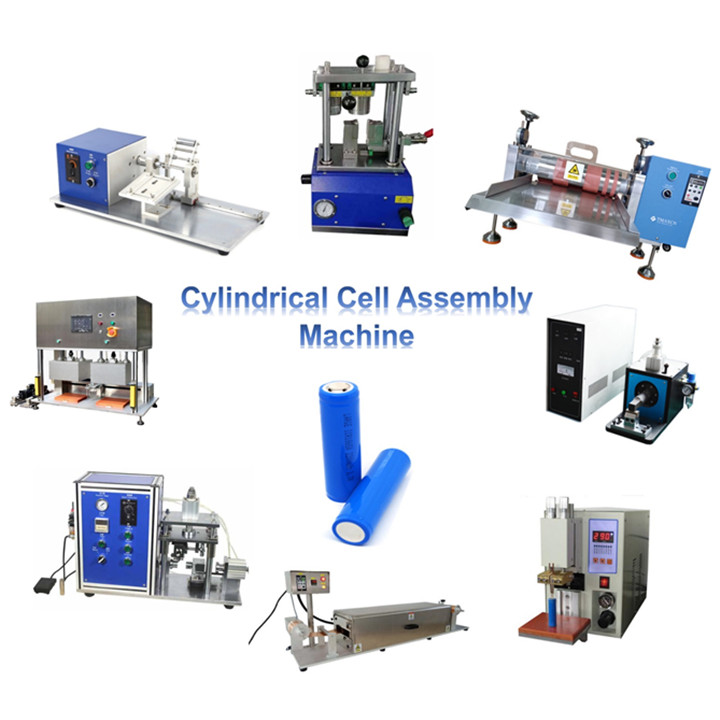An "18650 Lab scale Line" typically refers to a specialized laboratory setup or production line specifically designed for the research, development, and small-scale production of 18650 lithium-ion batteries. The term "18650" refers to the standard cylindrical cell format widely used for rechargeable lithium-ion batteries, characterized by a diameter of 18 millimeters and a length of 65 millimeters.
Here are some key aspects and functions of an 18650 pilot lab Line:
Cell Development: The lab line is used for developing and testing various aspects of 18650 cells, including electrode materials, electrolytes, cell chemistries, and manufacturing processes.
Prototyping: It facilitates the creation of prototypes of 18650 batteries, allowing researchers to experiment with different designs and materials.
Process Optimization: Researchers can optimize the manufacturing processes for 18650 cells, such as electrode coating, cell assembly, electrolyte filling, and sealing.
Small-Scale Production: While not for mass production, the lab line can produce small quantities of 18650 cells for testing and evaluation.
Quality Control: Quality control measures are implemented to ensure that the produced cells meet performance, safety, and quality standards.
Performance Testing: The lab line includes testing equipment to evaluate the performance characteristics of 18650 cells, including capacity, voltage, cycle life, and safety features.
Material Testing: Researchers can assess various materials, such as anode and cathode materials, separators, and electrolytes, to determine their suitability for 18650 cell applications.
Data Collection: Comprehensive data collection and analysis are performed to gather information on cell performance, efficiency, and safety.
Flexibility: The lab line is designed to be adaptable and flexible, allowing for quick adjustments and modifications to accommodate different cell chemistries and designs.
Research Collaboration: It often serves as a collaborative platform where researchers from academia, industry partners, and government institutions work together to advance lithium-ion battery technology.
Scale-Up Assessment: Information gathered from lab-scale production is used to assess the feasibility and cost-effectiveness of scaling up to larger, commercial production lines.
The 18650 cell production line plays a pivotal role in battery research and development, enabling researchers to explore new technologies and innovations in lithium-ion battery technology. It serves as a critical step in the pathway from laboratory discovery to commercial production, ultimately contributing to the advancement of energy storage solutions.

 pl
pl en
en fr
fr de
de ru
ru es
es pt
pt ko
ko tr
tr th
th







 Obsługiwana sieć IPv6
Obsługiwana sieć IPv6